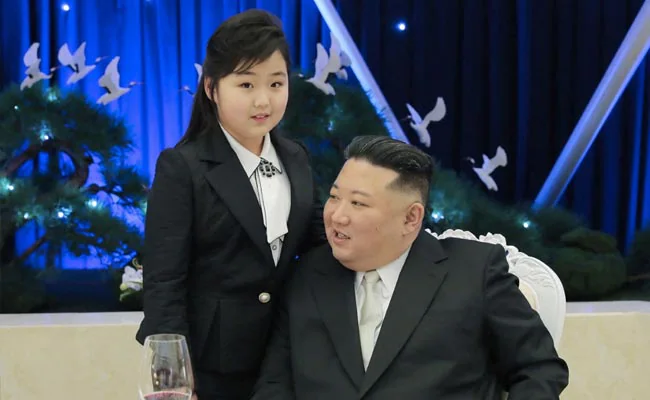Radio Free Asia reports that the luxurious lifestyle of North Korean leader Kim Jong Un is causing resentment in his country. (RFA). One North Korean informed the outlet that people are noticing Kim Ju Ae’s full cheeks when she appears in public with her father. Last week, the 10-year-old was seen alongside Kim Jong Un as North Korea conducted an intercontinental ballistic missile test. In an indication that Kim’s family will continue to govern the country, she was also present at a weapons display last month.
“It angers me that my situation is so difficult to bear while Kim Ju Ae, who we all know is eating and living well, appears on television so frequently in her expensive attire,” the North Korean said. The individual’s identity has not been disclosed for security reasons.
“People are saying things like, ‘She must be eating so well because her face is so white and plump like the moon,'” a North Pyongyang resident said in a February 28 report. “Because the majority of people cannot eat properly, their cheekbones are more prominent than ever.”
Another person likened the appearance of Kim’s daughter to that of starving children in the capital city.”They are enraged by the prevalence of the Beloved Child’s chubby, white face in propaganda,” a second source told RFA. According to them, she looks so different from the children of the common people, who cannot even consume three meals per day due to a lack of food.
Multiple media outlets have reported that Kim Ju Ae will succeed her father, but South Korean officials believe it is too early to make such a prediction. The Unification Minister of South Korea, Kwon Youngse, pointed out that North Korea is dominated by men, so Kim’s daughter would not be the next leader.
Earlier this month, Metro reported that Kim Ju Ae “enjoys a life of luxury” while the country’s citizens continue to face an intensifying food crisis. According to a report citing the South Korean National Intelligence Services, the 10-year-old enjoys swimming, skiing, and horseback riding in her spare time. She was educated at home in Pyongyang and has never attended an institution of higher learning.
Also Read | Imran Khan claims he could be killed if he visits physically in court
North Korean state media has never mentioned Kim’s offspring, but Seoul’s intelligence agency claims he and his wife have three. They are thought to be approximately 13, 10, and six years old.




